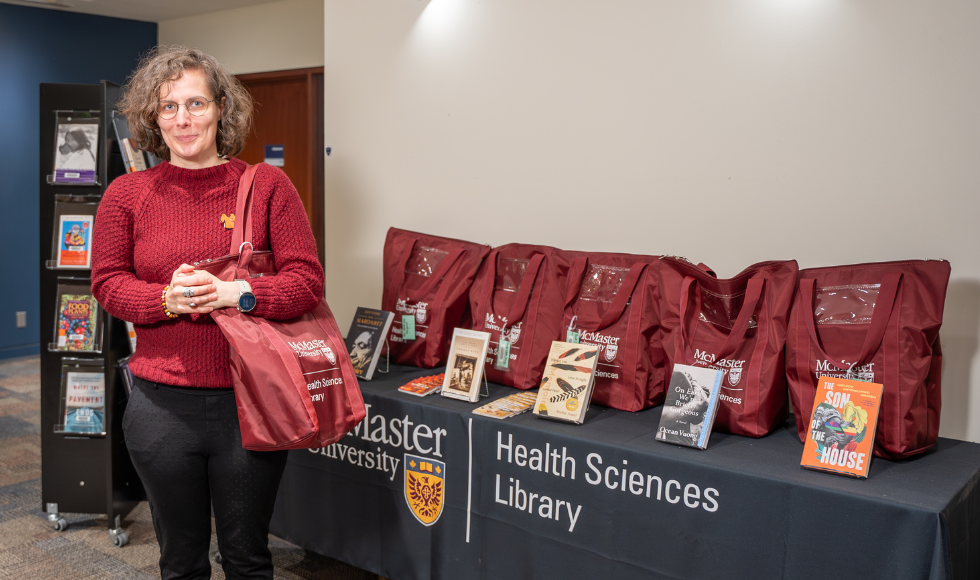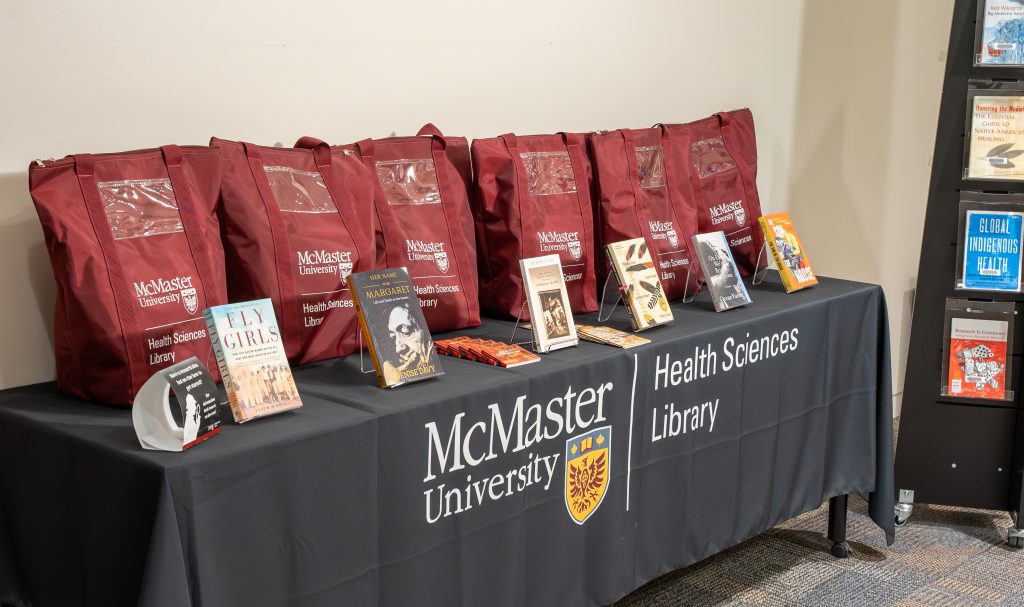Library’s new book club kits aim to spark conversations and foster acceptance

Health Sciences librarian Laura Banfield says the library's 10 Host Your Own Book Club Kits focusing on equity, diversity and inclusion “shift the dynamic” of EDI learning.
A new initiative from the Health Sciences Library is fostering community and inclusivity through books.
Thanks to funding from McMaster Okanagan, the library has Host Your Own Book Club Kits available – with the topics of each title focusing on equity, diversity and inclusion (EDI). The books present readers with an opportunity to explore experiences and ideas which may be challenging, uncomfortable, or unfamiliar.

A total of 10 unique kits are available, and each includes 10 copies of a single book and materials to facilitate a group discussion. Staff, faculty and students across campus are encouraged to sign out a kit.
“The goal is to provide people across campus with a different opportunity to gain insight into other peoples’ experiences, and hopefully that will lead to understanding and more openness,” says Laura Banfield, a Health Sciences librarian who focuses on Indigenous Reconciliation, Equity, Diversity, and Inclusion and Accessibility Initiatives.
Banfield says the project emerged out of work that began in 2018, when the Health Sciences Library facilitated an internal, self-directed Indigenous Topics Reading Group. Month to month, the library would select a topic, such as tattooing practices and patient rights in hospitals. The book club project was born out of this self-directed group.
“We thought, let’s see what happens if we try using people’s voices through fiction as a means of opening up another way of discussing these topics and learning about them,” she says.
The McMaster Okanagan Special Project Funding allowed the library to expand the idea to a formal initiative with 10 titles, ranging from an Indigenous memoir, a biography of the first female pilots, a biography of a Hamilton woman’s experience with homelessness, and a fictional story of two women caught in a constricting web of tradition, class, gender, and motherhood.
“Storytelling is foundational in so many traditions and cultures, and is known to be a powerful way for us to connect, empathize, and to seek to better understand. As a lover of books and someone who writes creatively, I wholeheartedly support anything that uses stories to encourage people to deepen their learnings in the areas of equity, inclusion and anti-oppression,” says Saroo Sharda, associate dean of Equity and Inclusion for the Faculty of Health Sciences.
One of the benefits of the kits is the unique learning dynamic it creates, Banfield says.
“It places everyone on the same level. By opening a book, you’re not necessarily looking to who the expert in the room is, or someone who has done research or taught in this area, or has lived experience. It shifts the dynamic of who the expert or knowledge-holder is and creates an opportunity for everyone to weigh in and discuss.”
Circe Cordeiro, a marketing and digital coordinator with the Faculty of Health Sciences, recently checked out Five Little Indians by Michelle Good, and says reading the book is a step she is taking towards reconciliation.
“I was excited when I read in a newsletter that the library was introducing book club kits for staff and faculty,” says Cordeiro. “It was good timing, as the holidays were around the corner, and I thought what better time to read.”
Cordeiro notes that she and her colleagues recently completed the San’yas Indigenous Cultural Safety Training Program and had momentum for continued learning.
“I strongly recommend anyone pick up a kit. Not only will you gain new perspectives and insights, but you will also challenge your own biases, assumptions, and privileges and how they influence your actions and decisions.”
To check out a book club kit, visit the registration desk at the Health Sciences Library. To recommend a title be added, email Laura Banfield (banfie@mcmaster.ca).


